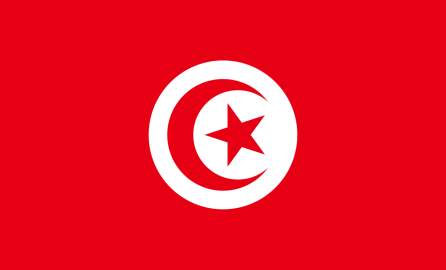Social media did not "cause" the end of Ben Ali’s reign last year, but it played a vital role in accelerating the course of events and enhancing the citizens' capacity to impact political events, according to Tunisian cyber activist, Amira Chebli.
Amira Chebli is a young Tunisian actress and singer. She has also been a cyber activist since the day of the self-immolation of the 26-year-old street vendor on 16 December 2010 that triggered riots causing the Tunisian regime to collapse a month later. That day, like hundreds of other young Tunisians, she turned to the social media to broadcast information on her country's popular revolt against the government's economic and media policies.
In a country where the government historically kept tight control on the mass media, mobile phones, blogs, YouTube, Facebook and Twitter feeds quickly became key in keeping the momentum going and mediating the live coverage of protests and speeches.
While Amira Chebli agrees that social media proved to be a vital tool for enhancing citizens' capacity to impact political events, she warns against the overstated idea that the Tunisian revolution was a social media revolution.
"It is not right on the political level to say that the revolution was made by a bunch of young people sitting in front of their computers. These young people were drawing on their experiences in the field to blog and write articles," she told capacity4dev on the sidelines of the European Development Days, which took place in Warsaw last December.
"We must not confuse the tool that was used with the political will behind it," she added. "We did use Facebook but it is not true to say that Facebook built the Tunisian revolution."
At the time of the revolution, the internet assumed the role of a very effective uncensored news agency from which every broadcaster across the world was able to source newsfeeds.
"Without the existence of a real free press, we had to become a news service ourselves. We had to track, verify and relay the news as well as to mobilise people," she explained. "It wasn't our job but we did it, no questions asked, because it was the obvious thing to do."
But for Amira Chebli, the end of Ben Ali's government doesn't mean that the social media's key role is over. In a country that went - in her words - from "a one-party to a fragile multi-party system", the social media, with their quality of reporting, will keep with the pressure on the traditional media until they become credible again.
"As long as the media is not upright and independent from politics, people will keep on looking for information from where they are not supposed to, like informal sources on the Internet."
When asked about her expectations from Donors and Development Cooperation in Tunisia, she argued that funding for example civil society is positive as long as it is not seen as a way to control the movement towards creating a new model owned by the Tunisian people.
----------
The role of the social media and extent of its impact on the Arab Spring is the subject of lively debate. For further information and figures, please visit the Project on Information Technology and Political Islam. A 2011 joint report by International Media Support (IMS) and the World Association of Community Radio Broadcasters also gives a comprehensive overview of the way the Tunisian media have evolved since the revolution.

Log in with your EU Login account to post or comment on the platform.